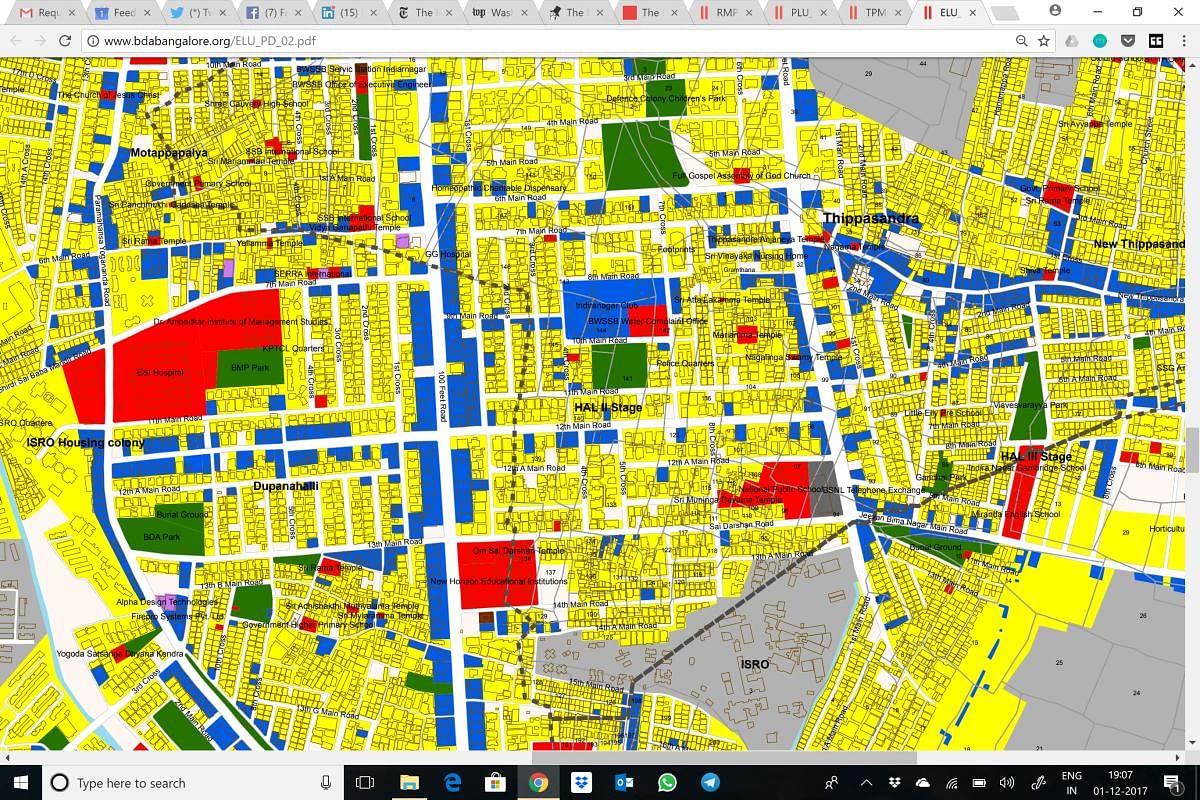Unlike most other cities in the world, Bengaluru has become known for planning for the past rather than for the future and it is thus no surprise that most infrastructure projects outrun their utility within a few years. Though the city is literally bursting at the seams, the Bengaluru Development Authority (BDA) continues to depend on an outdated masterplan, made long ago to prepare for a vision of the city in 2015, to charter the course of the state’s capital. With the Yediyurappa government scrapping the Revised Master Plan (RMP) 2031, prepared by Netherlands-based consulting firm Royal Haskoning DHV, without assigning any reason – we may well surmise that it was because it was commissioned by the previous Congress regime -- the city was left without a vision document. Now, to make matters worse, no company has come forward to bid to prepare a master plan for the city for 2041.
The no-show is the result of the BDA’s insistence that only individual companies participate in the bidding process, not consortia. In such contracts, which require vast experience in varied fields like overall urban planning, water supply, solid waste management and mobility, it is common for a group of enterprises to bid as a consortium. The bar on forming such consortia or special purpose vehicles, which is an established business practice, raises doubts over the real motive behind such a clause. Given the BDA’s dubious reputation, there are whispers that the condition was laid down in an attempt to favour a particular company, which failed for some reason, jeopardising the entire process. It is also possible that companies are keeping away due to the BDA’s poor credibility. The agency has been unable to find a bidder to reconstruct its Indiranagar complex even after calling for tenders three times. Online auctions held for residential sites recently were allegedly manipulated by touts, who cornered the sites.
Continuing to let Bengaluru run on a land-use vision charted for a decade ago will prove disastrous for the city. In the absence of a new plan since 2015, thousands of structures have already come up along the proposed peripheral ring road and in catchment areas of lakes. Urban planners and experts have warned that the continued absence of a master plan will result in more outward sprawl, increased congestion, air pollution and higher unsustainable consumption of water, among other problems. NGOs have demanded that the master plan be prepared by the Bengaluru Metropolitan Planning Committee (MPC) and not the BDA. That is as it should be, and it will have the benefit of extensive consultations with citizens on how they want their city to be. The state government must ensure that the MPC gets down to the task immediately.
